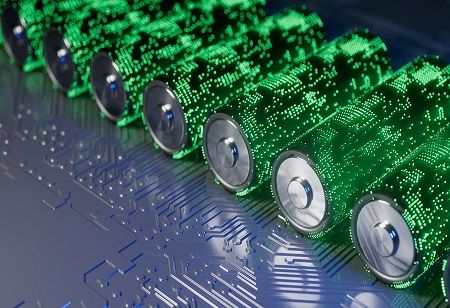
A team from South Korea has achieved a significant breakthrough in next-generation sodium batteries, offering a cheaper and safer alternative to conventional lithium-ion batteries commonly found in smartphones and electric cars. Sodium (Na) is more abundant than lithium and holds the potential for greater charge and efficiency compared to its Li-ion counterpart, being 500 times more abundant.
Despite the advantages of sodium, Na-ion batteries have faced limitations that hindered their widespread adoption, including long charging times and limited storage capacity. However, researchers from the Korea Advanced Institute of Science and Technology (KAIST) have successfully addressed these challenges by developing a high-energy, high-power sodium-ion battery capable of rapid charging.
This breakthrough was achieved by integrating materials typically used in batteries with those suitable for supercapacitors, commonly found in various applications such as regenerative braking systems in electric cars and wind turbine rotor blade adjustments. The resulting hybrid sodium-ion energy storage device surpasses the energy density of commercial lithium-ion batteries and holds potential for use in both electric vehicles (EVs) and consumer electronics.
According to Professor Jeung Ku Kang from KAIST's Department of Materials Science and Engineering, who led the research, the hybrid sodium-ion energy storage device exhibits rapid charging capabilities and achieves an energy density of 247 Wh/kg and a power density of 34,748 W/kg. This breakthrough represents a significant advancement in overcoming the current limitations of energy storage systems, with anticipated broader applications across various electronic devices.
The research, titled "Low-crystallinity conductive multivalence iron sulfide-embedded S-doped anode and high-surface-area O-doped cathode of 3D porous N-rich graphitic carbon frameworks for high-performance sodium-ion hybrid energy storages," was published in the journal Energy Storage Materials.
This achievement follows closely on the heels of a recent discovery by a team of researchers in Japan, who developed a new process for mass-producing solid-state sodium batteries. This technology can potentially address range anxiety by significantly enhancing the charging capacity of electric car batteries, potentially more than doubling the range of current EVs.
We use cookies to ensure you get the best experience on our website. Read more...